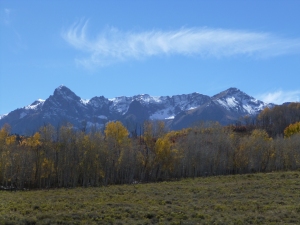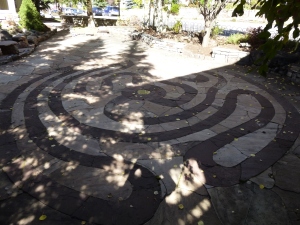Something like a year ago, I interviewed Rosemerry Wahtola Trommer, who’d recently become the Western Slope Poet Laureate. (For those of you who are unfamiliar with Colorado-speak, we refer to the part of our state that’s west of the Continental Divide, as “the Western Slope.”) I’d intended it for an online poetry magazine that went “on hiatus” while I was putting some of the final touches on the interview. Since, I’ve tried a couple other places, and neither place was interested in even receiving the interview.
Then, yesterday, I came across this interview, referenced in Rosemerry’s own blogsite. I read it, liked it, and then later pondered whether I could do the same with my own.
So, without further ado, here’s my own interview with Rosemerry.
Show Up And Write Something True
(An interview with Rosemerry Wahtola Trommer by Eduardo Rey Brummel)
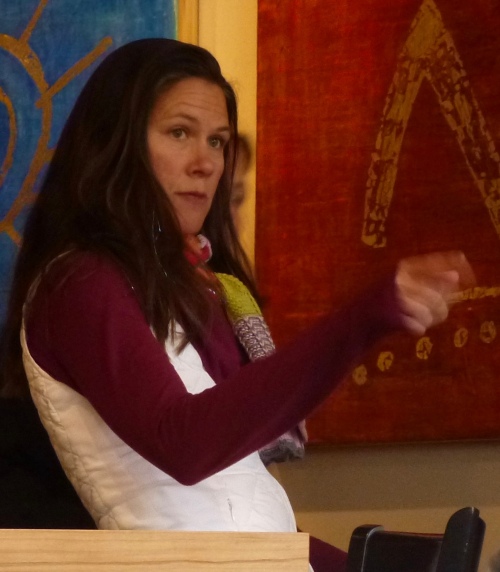 Rosemerry Wahtola Trommer, current Western Slope Poet Laureate, has had her work included in O Magazine, and on, Prairie Home Companion. One of her current WSPL projects has been the online, Heard of Poets: Poems From Colorado’s Western Slope, a weekly profile of a Western Slope poet.
Rosemerry Wahtola Trommer, current Western Slope Poet Laureate, has had her work included in O Magazine, and on, Prairie Home Companion. One of her current WSPL projects has been the online, Heard of Poets: Poems From Colorado’s Western Slope, a weekly profile of a Western Slope poet.
Long before she became WSPL, she was teaching and conducting workshops in places such as: Colorado Mesa University, Ah Haa School for the Arts, The Aesthetic Education Institute of Colorado, and Think 360 Arts. Her latest book is, Even Now, and her website is, wordwoman.com. She and her family live in Colorado’s San Miguel County.
(This interview was conducted via a series of emails between Rosemerry and myself.)
ERB: Let’s jump right in. In Mr. Hendrick’s fourth-grade class, you wrote:
“Pink is pretty/and fingernail polish./Lovely roses/I’d never abolish.” What would your fourth-grade self think of where that poem has taken you?
RWT: Well, that fourth-grade girl knew exactly one thing about poems. They were fun to write. She didn’t care if a poem were[was?] published. She didn’t know that it wasn’t practical to be a poet. She didn’t know that poems could save her life.
What a gift, really, to come to poetry for the pure pleasure of it. What pulled me in then, as it does to this day, is the thrill of reading poems and finding resonance there. And then there is the thrill of the blank page—how perfect it is in its potential. How anything can happen. And then there’s the thrill of the words themselves at play with each other through sound, through meaning. And then there’s the disappointment of not saying what we wanted to—not precisely communicating what we want to say. And the chance to try it again. And it’s free.
I have worked with enough fourth grade students to know that it is possible at age 10 to write really moving, mature, insightful poems. I was not one of those kids. I just wanted to have a good time. I think that fourth-grade self would be glad to know that I still find writing playful, even when the subject is very serious.
“…[I]t wasn’t practical to be a poet,” you said. I’m reminded of the line from, The Wizard of Oz, “Hearts will never be practical until they can be made unbreakable.” I’m not so sure being practical is really all that practical.
I love that line from the Wizard of Oz. I am grateful for impractical hearts—hearts that risk and break and open wider than we ever dreamed possible.
Tell me a little more about how “poems could save her life.”
I think many people who have gone through very difficult times can point to a poem that “saved them,” that helped them find meaning or purpose or at least the will to live another day. For me, that poem was “Rumi, Pay Homage,” a version of Rumi by Daniel Ladinsky.
What about your life, poetry or otherwise, surprises and/or amazes you?
Oh Eduardo, what doesn’t amaze me? Is that too flip? I am not trying to be flip. I think I live in a constant state of amazement. I am told it’s a little overwhelming for people around me sometimes.
Since you earned your graduate degree in Language and Linguistics, it seems you’d already decided to pursue some sort of writing career. Had you also decided, back then, to be a poet?
When I was at Colorado College, I was lucky enough to take a half-block class with Owen Kramer called “English as a Classical Language,” in which we looked at the Indo-European roots of words. It was the first time I was introduced to the phonetic alphabet, and I fell in love with the usefulness of that! I transcribed several of Hopkins’s poems into the phonetic alphabet, and it enabled me to really notice the patterns he was using. That was the beginning of my love affair with linguistics. I understood that if I wanted to really know language, a scientific background in phonetics, syntax, etymology and language acquisition would help enormously! I was an anomaly in the [University of Wisconsin-Madison graduate] program, for sure. Everyone else was planning on teaching ESL (which I did as a TA). But you are right, Eduardo, I chose to study linguistics because I knew it would really help me as a writer. I believe it does.
You’ve composed a poem each day, for what—the last ten years? What got you started, doing that? What’s kept you at it for all this time?
About ten years ago at Sparrows Poetry Festival in Salida, I did a workshop with Jude Janett. She had just finished doing a poem-a-day practice for 30 days and challenged each of us in the room to do the same. Here were her guidelines: Find two friends. Agree to send each other poems. Agree that you do not need to respond to each other’s daily poems. I thought it sounded impossible, but I was excited to try. I partnered with Ellen Marie Metrick and Barbara Ford. Ellen I knew well, and Barbara was someone I really wanted to get to know. It turned out to be a fabulous way to engage with each other and has fostered an intimacy that still exists between the three of us to this day.
After 30 days, we decided to go for 90. Then, when the other two decided to take a break, I decided to keep it up, though I did take a six-month break in 2008 when my second child was born.
Perhaps I would like to tell you that I need to do it, that I am driven to write the poems. Perhaps it is more true to say I do not need to do it. That it is all too easy to not write poems. That is why, I think, the daily poeming is so important. It helps me maintain poetry as a practice. Practice. That word is so vital to me when it comes to poetry. I feel as if I am constantly learning, constantly exploring new tools, new voices, new ways of reading and writing and saying the things that defy being said—like what it means to be alive.
One of the best things about writing a poem a day is that it takes off a lot of pressure. I used to only want to write if I was pretty sure that what I wrote would be good. As a result, I had a hard time starting. What joy I have now in saying I am a failed perfectionist. When writing a poem a day, I know I can’t write a masterpiece every day. But, as Billy Collins once said, “If you stay in the aviary long enough, sooner or later a bird will land on your head.” If you write enough poems, well, eventually you will write one that really sings.
Okay, one more thought. The practice has really shifted my approach to the page. Now, instead of my goal being to write something good, I tell myself all I need to do is show up and write something true. True, of course, does not mean factual. I would be lying, Eduardo, if I told you I don’t want to write something good. Of course I do! But that intention is not the starting point.
In his book, Fooling With Words, Bill Moyers quotes Mark Doty, who says, “I might write a poem which begins in raw and inchoate feeling. Most of my poems do begin that way. They come tumbling out of me, but that’s a cry, not a poem. An unshaped utterance is not a poem…. You must stand at a distance from yourself and apply all the resources you can muster to the raw stuff of experience.”
When I read this to Art Goodtimes, he disagreed, arguing for the unpolished—“First thought, best thought,” I reckon. What about you? Where do you stand: fine-tuned or closest to the source?
Ha! This is a great follow up to the last question. So. I feel that it is essential to start with something true … and then I very fiercely believe in craft. Of course the more you read and study, the more tools you bring with you to a first draft—a sense of rhythm, a drive toward a turn. In other words, the more you practice, the more likely it is you have better “first thoughts.”
I sure do understand what Art is saying, though. I would think that most poets know what it is like to wring out whatever is essential in a poem by fine-tuning it too much.
Whether I am writing a poem or revising it (hopefully after it’s very cold so I am a little less attached to it), I ask myself over and over and over, “Am I serving the poem?” I love this notion of being in service to the poem. For me, it’s come out of a mantra given to us by Jack Mueller, “Obey the poem’s emerging form.” I have never had much fondness for the word obey. But the more I feel that I am in service to the poem, the more I get out of the way and let the poem have its way, well, the more powerful the practice, the more powerful the poem.
Is there a poet whom you’re intimidated by? Say, whom you’re nervous about meeting? (Jane Hirshfield? Jorie Graham? Marie Howe? Sharon Olds?) Was it like this, crossing paths with Naomi Shihab Nye?
I suppose the kind of intimidation you are speaking of begins with admiration but is tarnished by comparison and even self-flagellation (“why can’t I be that brilliant, that funny, that wise, that clear”). Pedestal-itis: the impression that another person’s greatness makes them inaccessible. I’m prone this way.
That was the case when I met Naomi a few years ago. We were presenting together at a poetry festival in Ohio, and it became almost immediately clear that the pedestal was getting greatly in the way. There was no chance of friendship when I held her up so high. Luckily she was so warm, so human, it didn’t take long for me to learn I needed to alter my lens.
I have a friend who has a habit of meeting every poet she admires. She seeks them out and befriends them. I have watched her for years with great curiosity and I would like to think I am learning from her. What a gift we give ourselves to surround ourselves with people we consider to be more intelligent, more creative, more funny, more wise—people who inspire us.
I think I am particularly lucky to have landed on Colorado’s Western Slope where the poets tend to be especially friendly, welcoming, supportive and fun. That open-armed, open-hearted environment, fostered for years by Art Goodtimes, Jim Tipton, Karen Chamberlain and others, certainly helps take away some of that intimidation factor.
“Pedestalitis,” to be sure; but it’s, perhaps, a more intimate intimidation I’m asking about. For example, there are certain poets whose works can cause me to fall sort of into despair, wondering what right do I have, poeming, when the world already has this poet, their poems, so beyond my own talents. Michelle Kodis has said, “Comparison is the root of all unhappiness.” Do you struggle with this? If so, how do rise from these ashes, do you have to befriend a person in order to tear down their pedestal?
I think I used to be more intimidated by other poets and fall into the kind of desperation you’re describing. That doesn’t happen so much anymore. Maybe it’s a blessing that comes with age? I think we can exhaust that intimidated part of ourselves so that after years of clenching and shoulding and pedestaling, it finally gives up and we can relax a little more.
Why write? And why poems? Why not essays or stories?
Why write? Who can say why we are tugged to one art or another? For me, words are like friends, and I am infinitely curious about them. I love to know their etymologies. I love to speak them for the pure fun of speaking them. Language thrills me. And why poems? Well, partly because I have no sense of plot. I have written many essays and articles, and I enjoy creative non-fiction, but they don’t have the same magnetism for me as poetry. Perhaps, and I hate to admit it, part of this preference is because poetry is very efficient. I am half-German, and I think that there is a drive toward efficiency bred into me.
“I have no sense of plot,” you said. I disagree. What about “Vivian Learns First Person Possessive” and “Because Sometimes I Get that No Gets Me Nowhere,” from, The Less I Hold; nearly any poem from, The Miracle Already Happening; or even “Telluride Lunaria,” the very first poem from your first published collection, Lunaria? To be clear, I’ve scarcely even begun to scratch the surface. Sometimes plot does happen on the page, true; but there’s no plot unless it happens inside the reader—which all of these poems of yours, and so, so many others, cause to happen. I agree with you about the mysterious tugging toward a specific art form, the elegant efficiency of poetry, but I think you’re far more adept with plot than you give yourself credit for.
I have written a lot of short stories over the years, and I can tell you they are just plain bad. Maybe I have no sense of elongated plot 🙂
You are a singer, both with an a cappella group and in your everyday—have you considered writing lyrics?
I think that a lyricist might be better equipped to say what the difference is between a poem and a song lyric. The fact that I don’t know the difference is probably the reason why I am not a song writer. Having said that, Heartbeat has performed some of my poems as songs—other members have arranged them so we can sing them. And I have collaborated with other composers before—David Lingle even created a four-part choral arrangement based on the seasons that used four of my poems. I enjoy these collaborations and would love to do more, but I haven’t even considered writing songs for the sake of writing songs … Hmmm. Maybe I should learn more about it!
List some poems you wish you’d written.
Well, it’s more a hit list of some of my favorite poems … I am glad they were written. There could be many, many more if you have space …
“For the Anniversary of My Death,” W. S. Merwin
“Cruelty,” Lucille Clifton
“Kindness,” Naomi Shihab Nye
“i like my body when it’s with your,” e. e. cummings
“How You Might Approach a Fawn,” Wendy Videlock
“Postscript,” Daniel Gerber
“Learning to Speak Italian Slowly,” David Shumate
“Love,” Lola Haskins
“And Remember to Be Kind to Yourself,” David J. Rothman
“Roadkill Coyote,” Art Goodtimes
“Rumi, Pay Homage,” Rumi, translated by D. Ladinsky
All 100 Love Sonnets, Pablo Neruda
“O,” A. E. Stallings
“From Blossoms,” Li-Young Lee
“Spring and Fall,” Gerard Manley Hopkins
“Unwise Purchases,” George Bilgere
“Truth,” Alison Luterman
“Autumn,” “You Darkness,” and “I Live My Life in Growing Orbits,” Rainer Maria Rilke
“Concourse K,” Danny Rosen
“I Wanted You in the Kitchen of My Heart,” James Tipton
“The Sabbath Poems,” Wendell Berry
“Ask Me,” William Stafford
Had you been to Telluride before moving/landing here?
Though I lived in Colorado since 1980, my first visit to Telluride was in 1993. I was home on summer break from the University of Wisconsin-Madison where I was earning my Master’s in English Language and Linguistics. I had no idea what kind of town it was, but my German friend Babette and I were up for an adventure and drove over. We found a room for $10/night in a hotel being renovated and decided to stay a few nights. That evening, walking down the street, I met the man who would become my husband. After I graduated, that man, Eric Trommer, invited me to come live with him, and though I was wary of living in a resort town, I very muchly wanted to be with Eric. I still have reservations about living near a resort town, as jawdroppingly beautiful as it is, but I am very glad to be married to such a wonderful man and I love the beautiful life we have made together here.
Tell me about Talking Gourds. How did you get involved, and how has it evolved across the years? Are there struggles, finding a poet/writer, each month?
When I first moved to Telluride, Art was director of the Telluride Writers Guild, and he was leading monthly readings and an annual festival in which we passed a gourd around a circle to share our poems and stories. The gourd, a symbol of both the masculine and feminine, was a tradition passed on to him by deep ecologist Dolores LaChapelle. After a year or so, I took over as director of the Telluride Writers Guild. For ten years, I developed a pretty ambitious schedule of events—we had the monthly readings, plus two annual festivals (Walking Words and Talking Gourds), two annual contests, and a monthly writer-in-the schools program. Then, with my second child, I had to give up the leadership. The Writer’s Guild is presently defunct, but Talking Gourds has persisted as a poetry series, now under the umbrella of Telluride Institute. Art and I revived it in 2012. For the past two years it has been hosted at Arroyo, a wine bar in Telluride, on the first Tuesday of the month, and it always features a reader, followed by an open gourd circle. Most months we have themes, such as Water or Red or Liberty, and we invite readers to share poems or thoughts on the theme—though we don’t mind if someone shares on another topic.
I really appreciate the gourd circle. It is so different from the stage model, in which one person is put in the limelight. I like the equality of the circle, a round of listeners and speakers, and I like the symbolism of the gourd—it was the first vessel for a “message in a bottle” and has been a valued plant in many cultures.
What poems of yours have you been surprised by? How/Why?
Well, I would like to think that I get surprised in most of my poems. I push myself to not know how a poem will end. If I think I know the end, I try to write past it. Or I write two endings. My friend Kathryn Bass once called it using an “emergency exit” when we escape a poem by thinking we know where it will go.
But lately my best surprises have come when I have been collaborating. Recently I wrote thirteen poems based on paintings done by Colorado artists for a project sponsored by the Ars Nova Singers. I LOVED it! How else would I have ever gotten an elephant balancing on tea cups into a poem?
Another great surprise was to start performing with cellist Kyra Kopestonsky. We’ve been having so much fun pairing poems with music and rhythm, and it takes performance to a whole new level. I often clap and jump up with excitement when we stumble on a new way to play with the poem and the instrument. It’s just so darn exciting!
Do you write at a specific time, or do you squeeze it in when you’re able?
For the last few years, I have written almost always at night after my kids go to sleep. It seems to me there is a big difference in poems written in the morning and in the evening—one looks forward and the other looks back. It will be interesting to see when my practice changes how it changes the poems, too.
But beyond writing, I think that a poetry practice involves paying attention. This is something I really love about a daily practice. It invites us to be available to the world. I am almost always on the lookout for a poem bud.
Going back to what you said earlier about focusing on writing something true rather than good, doesn’t it typically turn out, anyway, that what is “true” is also “good?”
You are so right. If we can write something true, then chances are its authenticity will ring in the reader, creating resonance. Good is such a strange judgment. I would suggest that I would rather have resonance than be “good” in a technical way. Though of course, it would be great to have both!
I’ve another interview, with another poet. I’m thinking, now, I’ll post here as well, say, in a week or so.

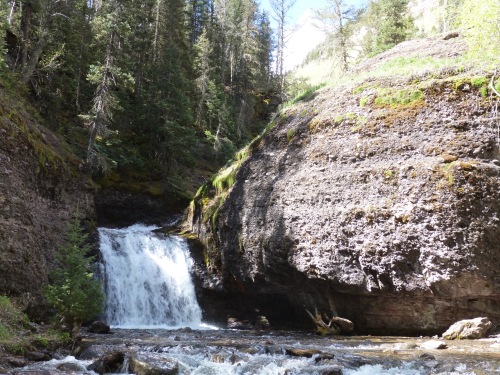
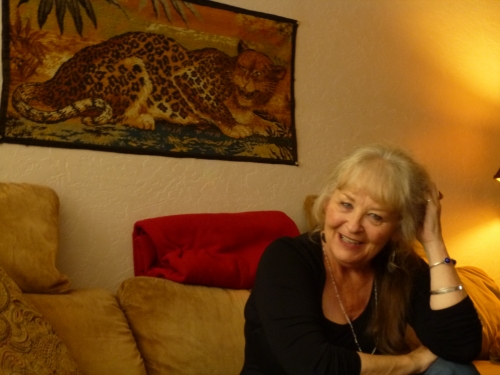
 Rosemerry Wahtola Trommer, current Western Slope Poet Laureate, has had her work included in O Magazine, and on, Prairie Home Companion. One of her current WSPL projects has been the online, Heard of Poets: Poems From Colorado’s Western Slope, a weekly profile of a Western Slope poet.
Rosemerry Wahtola Trommer, current Western Slope Poet Laureate, has had her work included in O Magazine, and on, Prairie Home Companion. One of her current WSPL projects has been the online, Heard of Poets: Poems From Colorado’s Western Slope, a weekly profile of a Western Slope poet.


